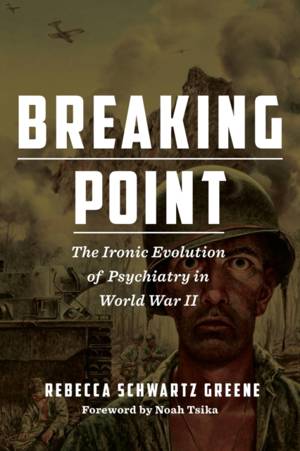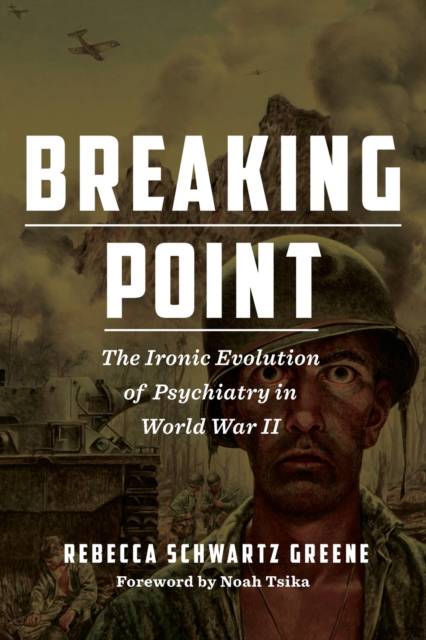
- Retrait gratuit dans votre magasin Club
- 7.000.000 titres dans notre catalogue
- Payer en toute sécurité
- Toujours un magasin près de chez vous
- Retrait gratuit dans votre magasin Club
- 7.000.0000 titres dans notre catalogue
- Payer en toute sécurité
- Toujours un magasin près de chez vous
38,45 €
+ 76 points
Description
WINNER, SOCIETY FOR MILITARY HISTORY DISTINGUISHED BOOK AWARDS - FIRST BOOK
This book informs the public for the first time about the impact of American psychiatry on soldiers during World War II. Breaking Point is the first in-depth history of American psychiatry in World War II. Drawn from unpublished primary documents, oral histories, and the author's personal interviews and correspondence over years with key psychiatric and military policymakers, it begins with Franklin Roosevelt's endorsement of a universal Selective Service psychiatric examination followed by Army and Navy pre- and post-induction examinations. Ultimately, 2.5 million men and women were rejected or discharged from military service on neuropsychiatric grounds. Never before or since has the United States engaged in such a program. In designing Selective Service Medical Circular No. 1, psychiatrist Harry Stack Sullivan assumed psychiatrists could predict who might break down or falter in military service or even in civilian life thereafter. While many American and European psychiatrists questioned this belief, and huge numbers of American psychiatric casualties soon raised questions about screening's validity, psychiatric and military leaders persisted in 1942 and 1943 in endorsing ever tougher screening and little else. Soon, families complained of fathers and teens being drafted instead of being identified as psychiatric 4Fs, and Blacks and Native Americans, among others, complained of bias. A frustrated General George S. Patton famously slapped two "malingering" neuropsychiatric patients in Sicily (a sentiment shared by Marshall and Eisenhower, though they favored a tamer style). Yet psychiatric rejections, evacuations, and discharges mounted. While psychiatrist Roy Grinker and a few others treated soldiers close to the front in Tunisia in early 1943, this was the exception. But as demand for manpower soared and psychiatrists finally went to the field and saw that combat itself, not "predisposition," precipitated breakdown, leading military psychiatrists switched their emphasis from screening to prevention and treatment. But this switch was too little too late and slowed by a year-long series of Inspector General investigations even while numbers of psychiatric casualties soared. Ironically, despite and even partly because of psychiatrists' wartime performance, plus the emotional toll of war, postwar America soon witnessed a dramatic growth in numbers, popularity, and influence of the profession, culminating in the National Mental Health Act (1946). But veterans with "PTSD," not recognized until 1980, were largely neglected.Spécifications
Parties prenantes
- Auteur(s) :
- Editeur:
Contenu
- Nombre de pages :
- 368
- Langue:
- Anglais
- Collection :
Caractéristiques
- EAN:
- 9781531500269
- Date de parution :
- 03-01-23
- Format:
- Livre broché
- Format numérique:
- Trade paperback (VS)
- Dimensions :
- 155 mm x 226 mm
- Poids :
- 879 g

Les avis
Nous publions uniquement les avis qui respectent les conditions requises. Consultez nos conditions pour les avis.






